9th ICCP Training Course in Organic Petrology
| October 26, 2016 | Filled under Courses |
|
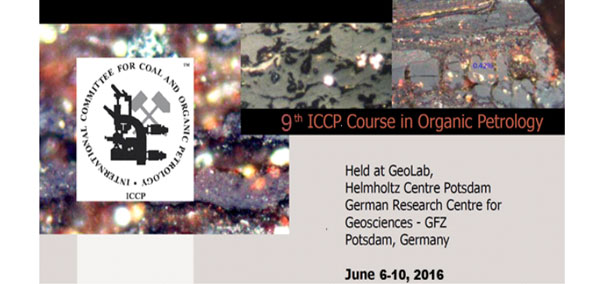
1. Introduction
The International Committee for Coal and Organic Petrology (ICCP), in conjunction with Geolab, DGGV (Deutsche Geologische Gesellschaft – Geologische Vereiningung e.V.), the Teichmüller Foundation and GFZ (the German Research Centre for Geosciences), is pleased to announce a training course in organic petrology to be held in Potsdam between 6-10th June 2016.
The course is centred on the petrology of coals with a particular emphasis on extending familiarity with a wider range of coals and dispersed organic matter. Practical applications and technological importance will be stressed.
While a basic geological understanding will be assumed, the course is designed for those with little or no knowledge of coal. It is therefore suitable for under-graduate or post graduate students as well as established professionals who require a more thorough understanding of petrological aspects of coals.
A Certificate of participation will be awarded to each person completing this course, but this does not include accreditation from the ICCP. Information for the ICCP Accreditation Program can be found at Accreditation.
2. Registration and fees
Registration includes tuition. Costs include course notes, lunches and coffee and farewell function. Cost for the course excludes travel, accommodation and meals except where stated. Printed notes will be available for the courses. Powerpoint presentations will be used for the lectures. Course notes will be distributed to each participant and a CD of the notes and Powerpoint presentations will be available.
| Company / Professional | 1300 € |
| Government / Non-Profit | 700 € |
| Student | 250 € |
Cost for the course excludes travel, accommodation and meals except where stated. Costs include course notes, lunches and coffee, and course dinner.
Course language is English
Space is limited and will be on a first come basis. A detailed course outline will become available soon at www.iccop.org.
Further information is available from:
Peter Crosdale at peter.crosdale@energyrc.com.au
3. Payments
Payment should be settled at the latest on 15 May, 2016. After registration in the course you will receive, from our Treasurer Mrs. Jennifer Pearson, a proforma invoice with the amount due and all details of bank account for bank transfer and/or for payment with credit card (only VISA and MASTERCARD).
4. Accommodation
Participants must make their own accommodation reservations directly.
 For hotels in Potsdam please visit:
For hotels in Potsdam please visit:
https://www.potsdam.de/kategorie/hotels If you need further information please contact: Antje Treutler at treutler@gfz-potsdam.de
5. Venue
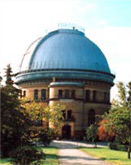 Helmholtz Centre Potsdam
Helmholtz Centre Potsdam
GFZ German Research Centre for Geosciences
Telegrafenberg
14473 Potsdam, Germany
The Helmholtz Centre Potsdam GFZ German Research Centre for Geosciences has a good connection to the railway service and to the international airports of Berlin. From Berlin there is an easy access by public transport. From the Potsdam-Hauptbahnhof you can walk in 15 Minutes to the Campus “Albert Einstein”. A detailed location plan is available from the GFZ-website: http://www.gfz-potsdam.de/en/centre/about-us/directions-and-locations/
The GeoLab is situated in Building A27, Big Refractor (Großer Refraktor),
a campus plan is also available from the GFZ-website: https://media.gfz-potsdam.de/gfz/wv/doc/CMS/15/Campusplan.pdf
6. Course outline
The course will meet daily from 9:00 am until 6:00pm, with breaks for morning and afternoon tea, and lunch.
Theory: Coal genesis (geology and geochemistry), Coal Composition and type: Lithotypes, Macerals and Microlithotypes Coal rank and rank parameters. Petrographic analyses: fundamentals of the optical microscope and sample preparation, maceral and microlithotype analyses, vitrinite reflectance analysis and the use of fluorescence. Basic factors controlling quality and technological behaviour of coal. Industrial applications of organic petrology.
Practical:
Practical session on petrographic techniques: The use of the reflected light microscope, identification of coal components, point-counting analysis, reflectance measurements, fluorescence analysis (all by pre scanned analyses on a screen with the group) on coals of different type and rank and grade. Preparation of participants for ICCP accreditation programs on coal analysis. It would be possible to examine your own coal samples.
Practical session facilities will be provided by Hilgers Technisches Büro, using a microscope with FOSSIL software for reflectance measuement, documentation and training.
7. Trainers
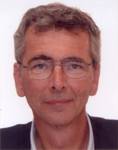
Walter Pickel
Walter Pickel received his PhD from the Rheinish Westfaelische Hochschule (RWTH) Aachen, Germany in 1991.
He taught and worked at RWTH until 1998. He joined CSIRO Petroleum in Sydney, Australia as a senior research scientist in 1999. In 2003 he joined Harold Read & Associates and co-founded Coal & Organic Petrology Services P/L in Sydney in 2004, a company of which he is the managing director.
Apart from teaching at Aachen University, he has been giving classes and workshops at Cologne University, in Chile, Indonesia and Australia and has taught various ICCP courses on general organic petrology and on industrial applications of organic petrology. He was appointed visiting professor at the Instituto de Geologia Economica Aplicada –GEA at the University of Concepcion, Chile in 2000.
He is author/co-author of some 80 reviewed papers and abstracts. He is a member of the ICCP since 1991 where he convenes various working groups and got the Thiessen Medal Award in 2015 for the achievements in the field of organic petrology.
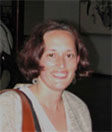
Angeles Borrego
Angeles Borrego
Angeles G. Borrego is Scientific Researcher at the Instituto Nacional del Carbón (INCAR-CSIC) in Oviedo, Spain. She got the PhD from the University of Oviedo in Spain in 1992 after having performed short stays at the NRG on fossil fuels and environmental geochemistry in Newcastle upon Tyne (UK), and the University of Bergen (Norway). She worked for nearly three years at the Lehrstuhl from Erdöl und Kohle (RWTH Aachen), Germany with a Marie Curie postdoctoral fellowship. Her research has mainly focused on the study of oil shale and source rocks with special emphasis in the relationships between organic petrology and geochemistry, the petrographic characteristics of chars and the behavior of macerals upon pyrolysis, and more recently on peat as record of palaeo-environmental variability. This research has been carried out within the framework of national and international projects and has yielded over 60 papers in peer reviewed journals. Angeles gives some classes at the University of Oviedo and has taught compact organic petrology courses for coal and oil companies and at the Federal University of Rio Grande do Sul (Porto Alegre, Brazil), Universidad Pedagógica y Tecnológica de Colombia (Sogamoso) and Universidad Autonoma de Coahuila (Mexico) in addition to the ICCP course on dispersed organic matter in 2014.
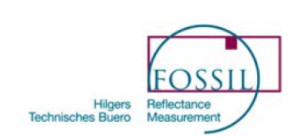 Practical session on petrographic techniques: The use of the reflected light microscope, identification of coal components, point-counting analysis, reflectance measurements and fluorescence analysis (all by pre-scanned analyses on a screen with the group) will be applied on coals of different type and rank, coal blends and related organic substances. Practical session facilities will be provided by Hilgers Technisches Büro using a microscope with FOSSIL software for reflectance measurement, documentation and training.
Practical session on petrographic techniques: The use of the reflected light microscope, identification of coal components, point-counting analysis, reflectance measurements and fluorescence analysis (all by pre-scanned analyses on a screen with the group) will be applied on coals of different type and rank, coal blends and related organic substances. Practical session facilities will be provided by Hilgers Technisches Büro using a microscope with FOSSIL software for reflectance measurement, documentation and training.
8. Disability-related needs
If you plan to attend the course and you have disability-related needs, please contact Antje Treutler at treutler@gfz-potsdam.de

